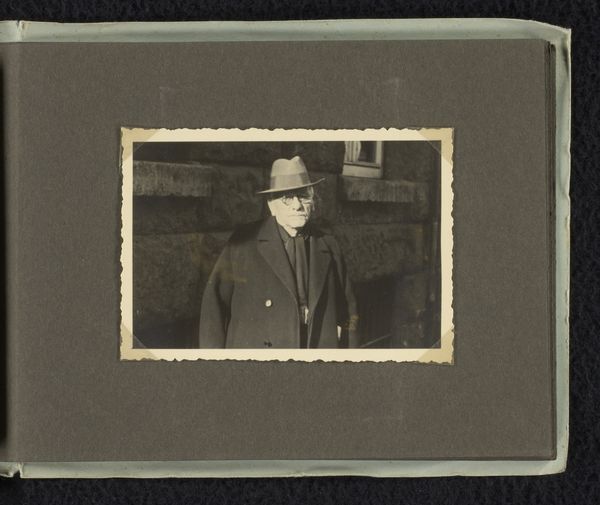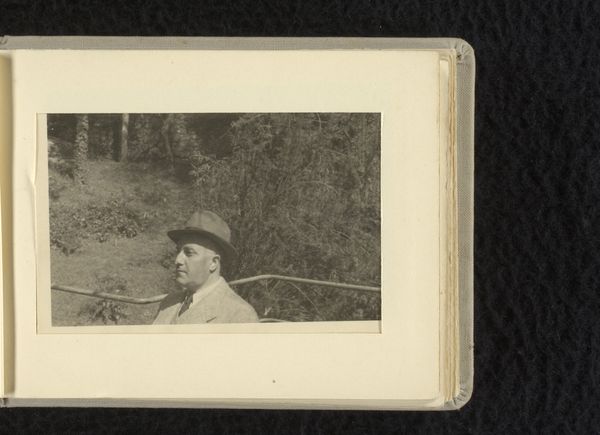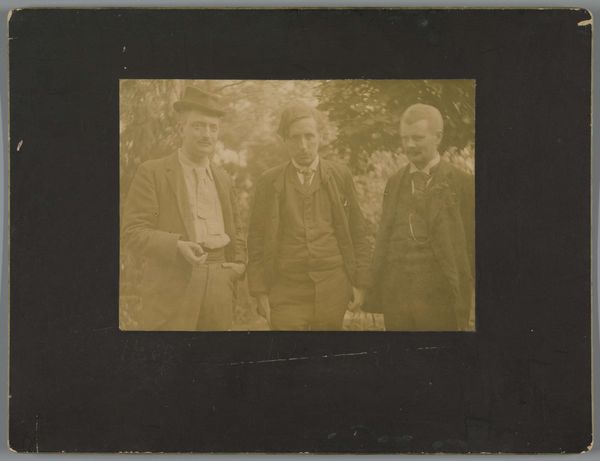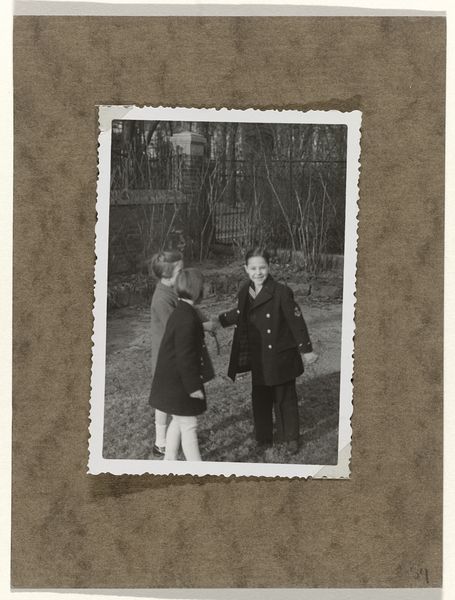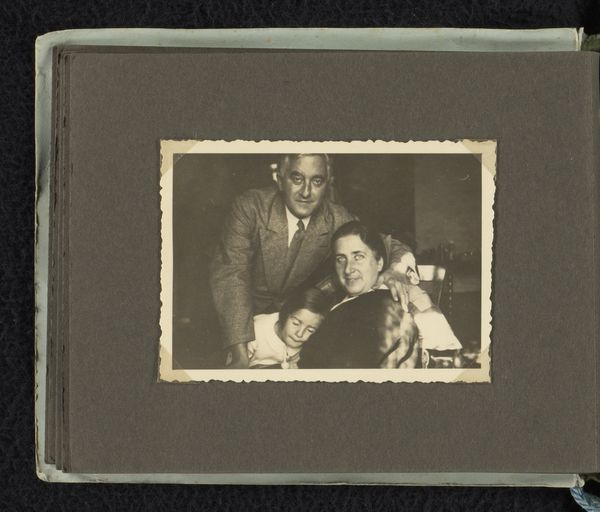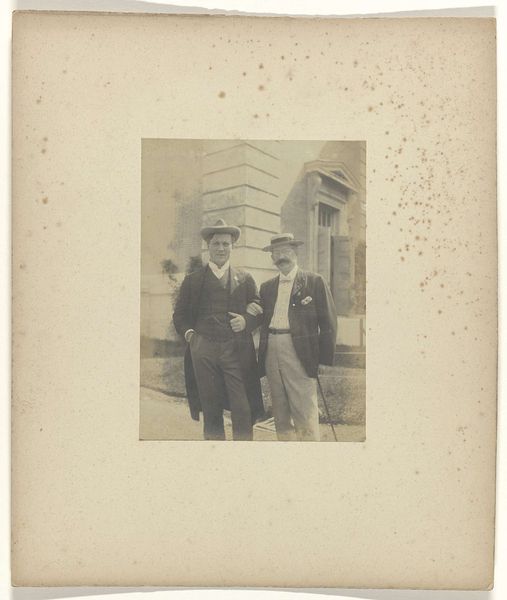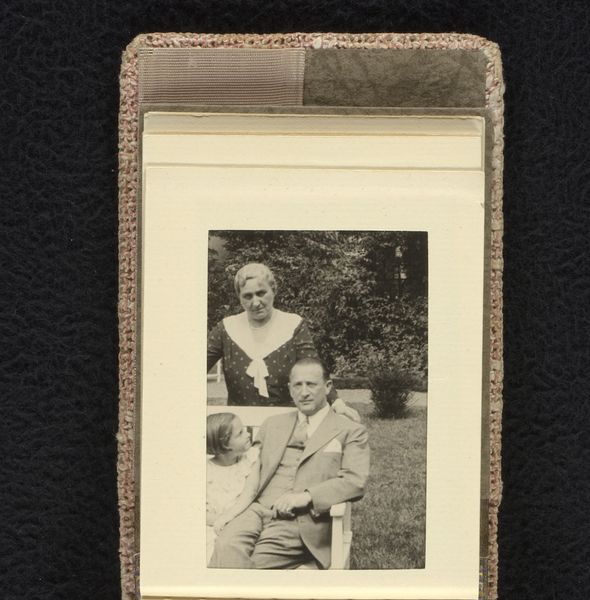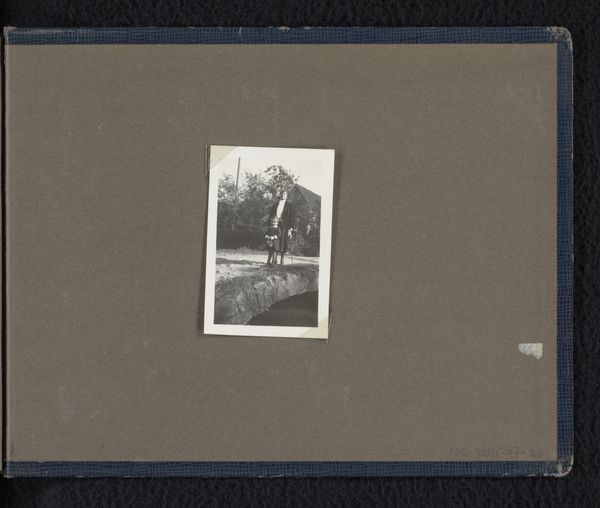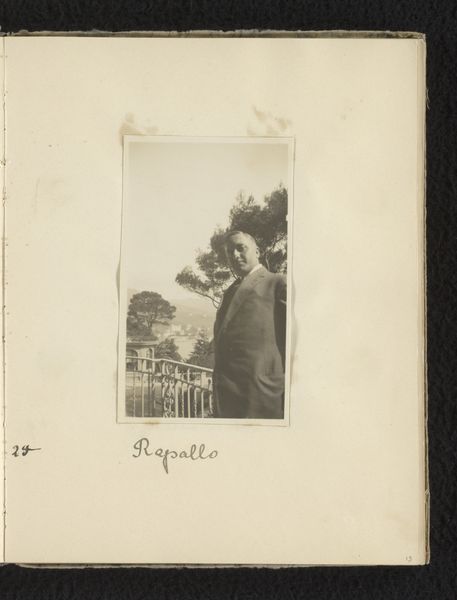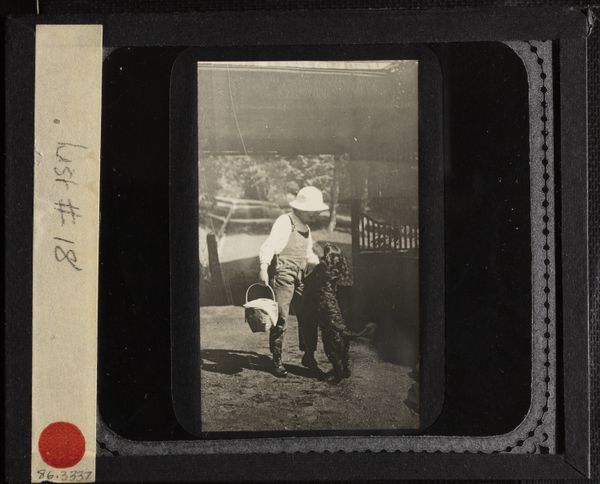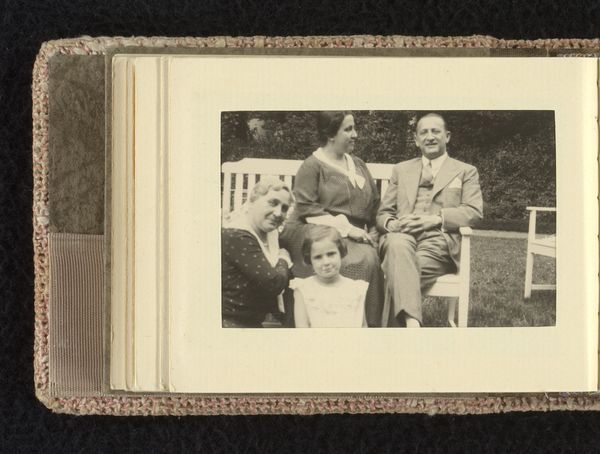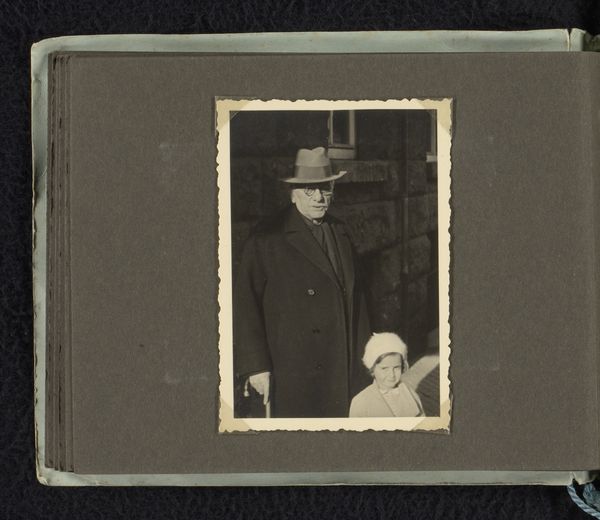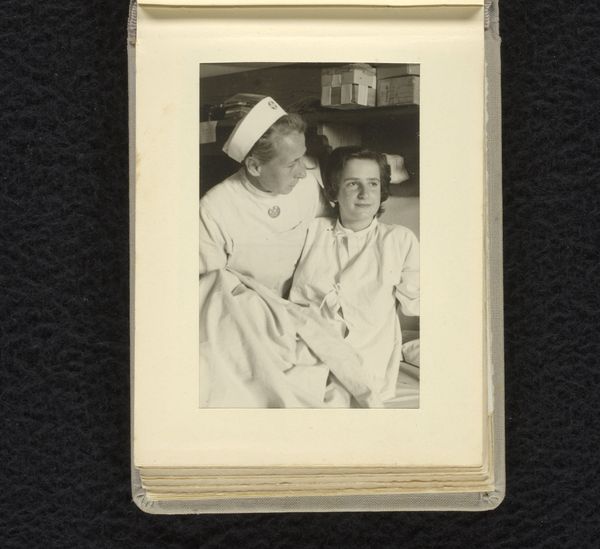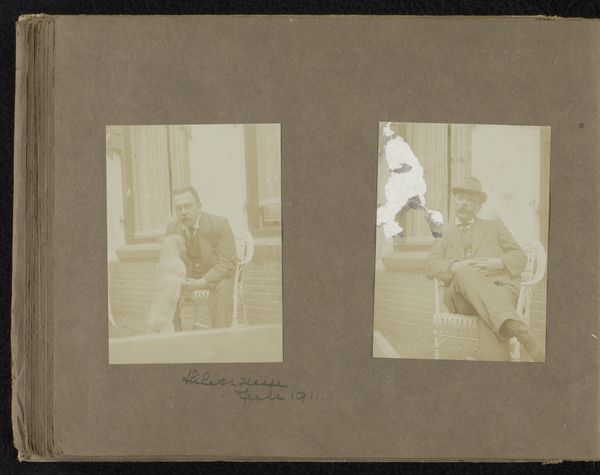
Isabel Wachenheimer (links) en haar vader Eugen Wachenheimer (rechts) bij een rivier in Hamburg tijdens een bezoek aan Willy Moos, september 1934 1934 - 1939
0:00
0:00
photography
#
portrait
#
archive photography
#
photography
#
historical photography
#
historical fashion
#
genre-painting
Dimensions: height 65 mm, width 90 mm
Copyright: Rijks Museum: Open Domain
This photograph captures Isabel Wachenheimer and her father, Eugen, by a river in Hamburg in September 1934. Although the photographer is unknown, the image itself, rendered in monochrome, is far from neutral. Photography had become quite widespread by this point, and a powerful means to capture likeness. But it also had a dark side: the camera could be used as a tool of surveillance, creating a record of citizens at a time when many people were being persecuted. Consider the great care that must have gone into this photograph, taken during a period of immense anxiety for Jewish people in Germany. The placement of the subjects, the relatively high production values of the print, and the retention of the image all speak to its importance as a keepsake. The value of this photograph resides not only in the image, but in the material itself: a fragile document of defiance, perseverance, and remembrance. It invites us to reflect on the relationship between the personal and the political, urging us to think critically about who creates images, and why.
Comments
No comments
Be the first to comment and join the conversation on the ultimate creative platform.
